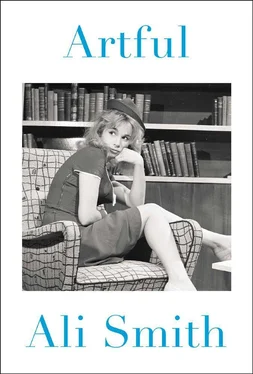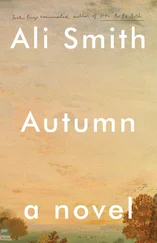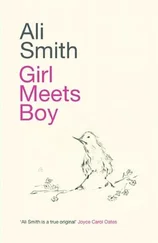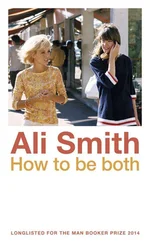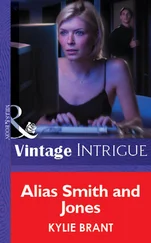You were sitting at your desk. You didn’t turn round. You shook your head.
You could , I said, they positively like it if you talk about stuff like that at universities these days. There are whole courses, now, devoted to things like the Carry On films, or Coronation Street, or the changing orientation of Tom Cruise’s hair in consecutive Mission: Impossible films.
That last one was true; I wasn’t making it up. I actually had met a girl on a bus once who’d told me it was her PhD topic. I’d come home and told you and you’d laughed. Now it made you laugh again. Ten points to me.
Thanks, you said. I just want to concentrate, I just want to get these done.
You turned towards me, you looked pained. No, it wasn’t pained you looked, it was in pain. You were pale with it.
You could so write about the marketplace in Oliver! I said. The Consider Yourself scene.
You waved me back with your hand.
You could write about Nancy singing As Long as He Needs Me, I said. That’s all about generosity. She’s all about sacrifice. God, when you think about it, that whole film’s about generosity and sacrifice.
Have you ever thought of reading the actual novel? you said.
I did, I said. Years ago.
You might like to read it again, you said. If you do, you’ll find that there’s not much singing, that Fagin’s gang of boys is dark as can be, that Fagin’s as close to talking about a child pornographer as a Victorian writer can come, and Dickens’s sense of mercy, his generosity, is astonishing in the light of the dark he creates. And it’s good about mirroring characters, Rose and Nancy, Oliver and the Dodger, Oliver and Dick—
Who’s Dick? I said. There’s no character called Dick in the film.
Really busy here, you said.
I could look up some of the lyrics for you, I said coming further into the room.
You held your hand up flat like a traffic policeman. With your other you covered the screen of your computer. You meant: get out.
Okay, I said. Call me if you need anything.
Now I had paused Oliver! on the dvd machine, Mark Lester staring with astonishment at the barred window giving.
I looked out my own window. The sycamore was rude with opening buds. There were two young collared doves sitting close on a single branch.
I remembered something I’d read in that book I’d lifted from the charity shop in Brighton, about birds’ eggs, how the egg of a bird is crystalline, made of layers lined with minuscule air canals so the chick inside can breathe; how the thickness of each egg’s shell meets exactly the pressure each incubating bird will bring to bear on it.
Imagine me going into a shop and taking a book, taking two books and not paying. I must have been in a very bad way back then.
The collared doves out there were mates, they were doing a mating dance facing each other, pressed close to each other, mirroring each other’s movements. Up went one head, up went the other. Down went one head, down went the other.
I left Oliver on freeze-frame, went through to the study desk. I moved my work records and the mess of envelopes I kept my accounts in; I shifted the old hard drive covered in dust. There they were, piled under it. Maybe I hadn’t read the last of them on purpose, so there’d still be something of yours I hadn’t. Certainly I’d sorted and filed and decided about and thrown out and given away pretty much everything else by now. (That thought made me feel a bit better — charity shops had done very well out of us, I’d given them stuff of yours worth much much more than the couple of old books I’d taken.)
I peeled off the pages above On Time, the pages I’d not read yet, On Offer and On Reflection. I left the rest on the desk and went and sat under the anglepoise in the armchair I’d moved across the room last summer. Imagine, I’d actually felt bad about moving it, like I was being disloyal. But it was good here. See? It worked here.
Who was I talking to? Who was I telling all this to? Who cared what I did or didn’t do, where I sat or didn’t sit?
1. Putting the Art in Bartering
Offer: From the Latin, ob , towards, and ferre , to bring.
To present as an act of devotion, homage, charity, etc. To express willingness. To hold out for acceptance or rejection. To lay before someone. To present to the mind. To propose to give, pay, sell, or perform. To attempt (violence, resistance, etc.). To make a show of attempting. To make as if. To give the enemy an opportunity for battle. To present itself. To be at hand. To incline or tend. To make an offer, i.e., of marriage. The act of offering. The state of being offered. Something which is offered. The first advance. A proposal made. An attempt or essay. A knob on an antler.
So offer involves rejection as well as acceptance. It involves everything between giving, selling, and merely thinking about either. It seems to be about both marriage and violence, and since an antler’s involved — antlers being studded with offers — there’ll probably be issues of both mating and territory. Offer means money, and the hope of money. There’s an unanswered question at the heart of the word, the possibility of what won’t materialize. In joinery, to offer something up means to position something loosely or unfixedly, to see whether it’ll work before you fix it into place; in more usual usage, if you’re offering something up, it’s in the hope of persuading something to happen. So the notion of offer involves hope, a certain flexibility round acceptance or rejection, and the likelihood of both.
The notion of giving always involves, in multiple ways, the questions that surround taking. It’s possible that where we recognize the generosity implicit in giving, we only much more rarely think about the generosity implicit in response to what’s offered, in acceptance.
These are ancient terms, primal terms, as the poet HD suggests — aptly on several levels of consciousness here — in this story from her memoir, Tribute to Freud, about the problematics of giving a gift to her analyst, Sigmund Freud:
The Professor was seventy-seven. His birthday in May was significant. The consulting room in the strange house contained some of his treasures and his famous desk…Instead of the semicircle of priceless little objets d’art , there was a carefully arranged series of vases; each contained a spray of orchids or a single flower. I had nothing for the Professor. I said, ‘I am sorry, I haven’t brought you anything because I couldn’t find what I wanted.’ I said, ‘Anyway, I wanted to give you something different.’ My remark might have seemed a shade careless, a shade arrogant. It might have seemed either of these things, or both. I do not know how the Professor translated it. He waved me to the couch, satisfied or unsatisfied with my apparently casual regard for his birthday.
I had not found what I wanted so I did not give him anything. In one of our talks in the old room at Berggasse, we had gone off on one of our journeys…‘Ah, the Spanish Steps,’ said the Professor…‘the gardenias! In Rome, even I could afford to wear a gardenia.’…
It was sometime later that the Professor received my gardenias…I found them in a West End florist’s and scribbled on a card, ‘To greet the return of the Gods.’ The gardenias reached the Professor. I have his letter…
Dear H.D., I got today some flowers. By chance or intention they are my favorite flowers, those I most admire. Some words ‘to greet the return of the Gods’ (other people read: Goods). No name. I suspect you to be responsible for the gift.
Freud here, noting the slippage of others, marks exchange as a place where the gods and the goods come together. But the act of giving and accepting which goes between Freud and HD marks not just that crossover of matter and immortality, not just the act where authority is recognized and paid (or promised) homage, not just questions of satisfaction and its opposite, and not just the suggestion, fascinating in itself, that in some way we are (and will be held) responsible for what we give to others. It also includes these simple-seeming, repetitious statements: ‘I haven’t brought you anything because I couldn’t find what I wanted,’ and again a moment later, ‘I had not found what I wanted so I did not give him anything.’ In context, of course, it means HD simply hadn’t found what she wanted to give Freud. But that’s not what it very simply says. Very simply, it links the act of giving to that of fulfilling your own desire.
Читать дальше
